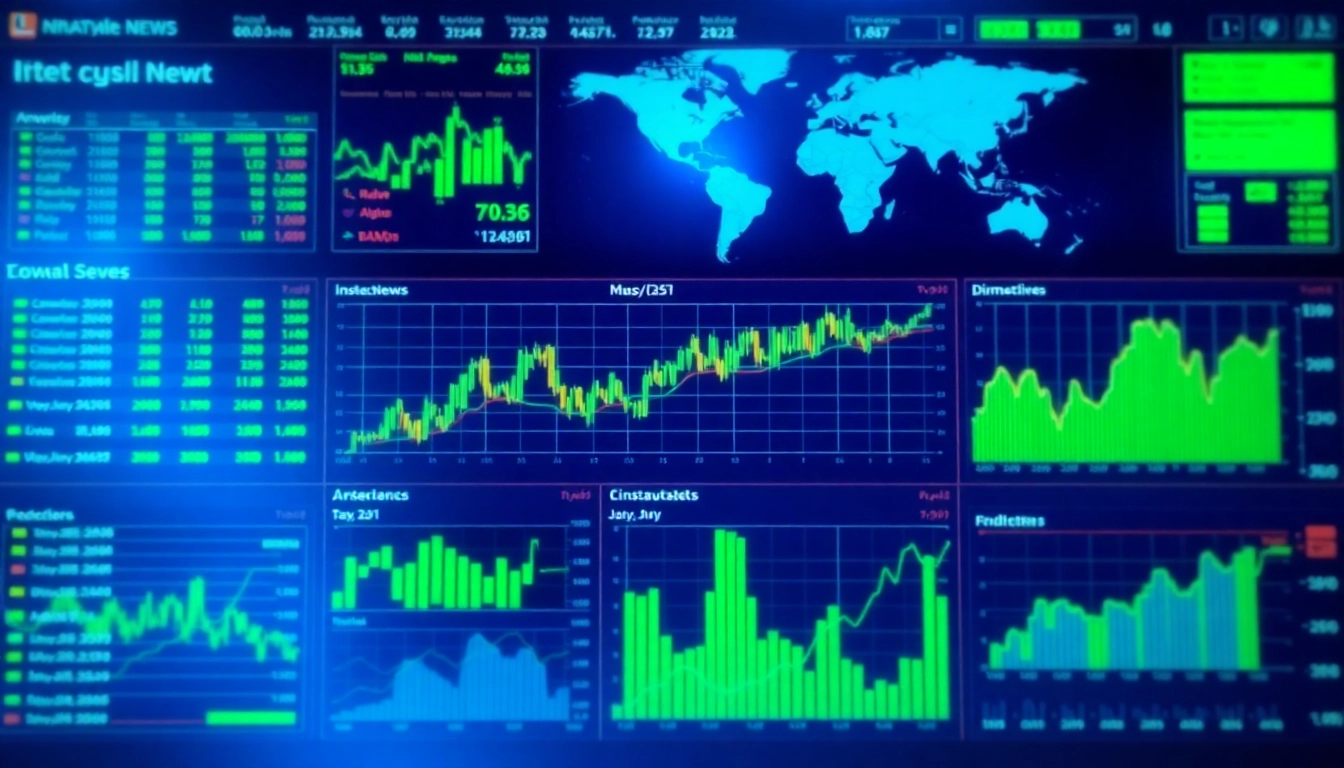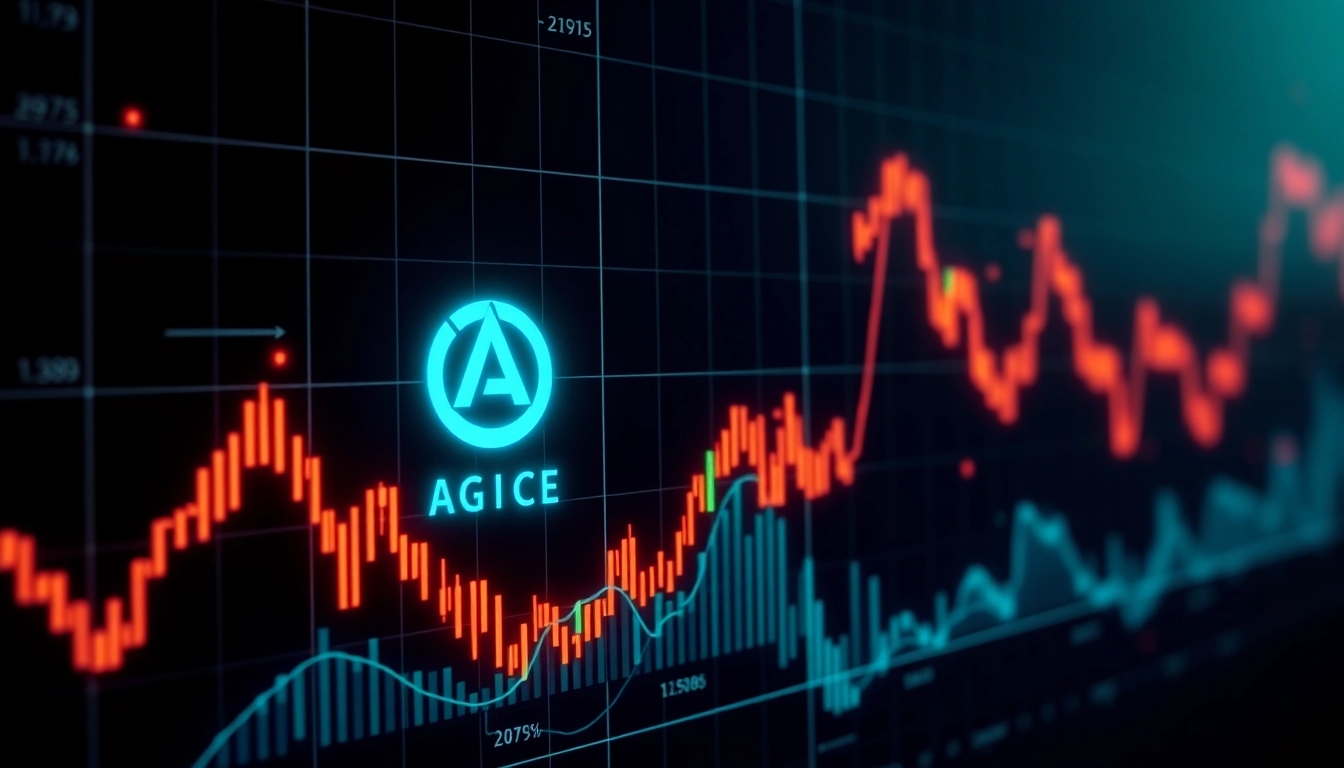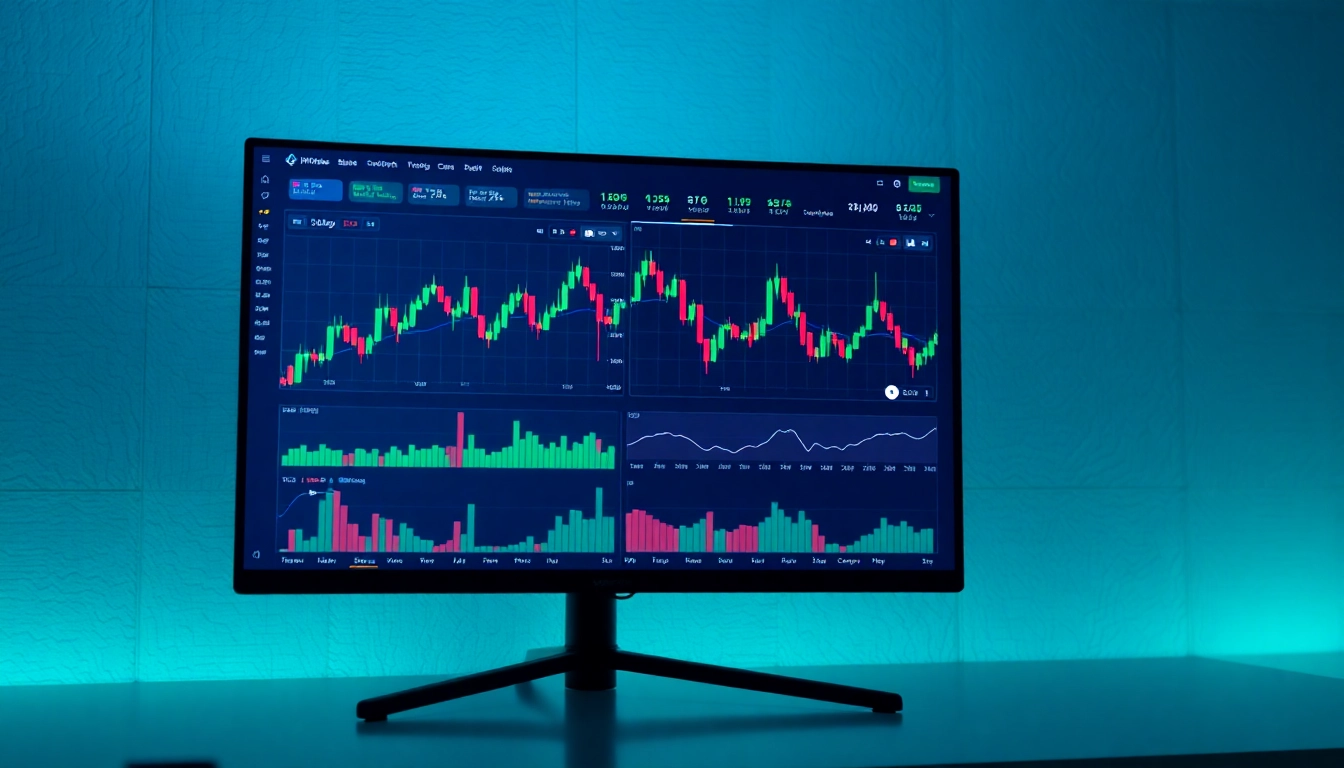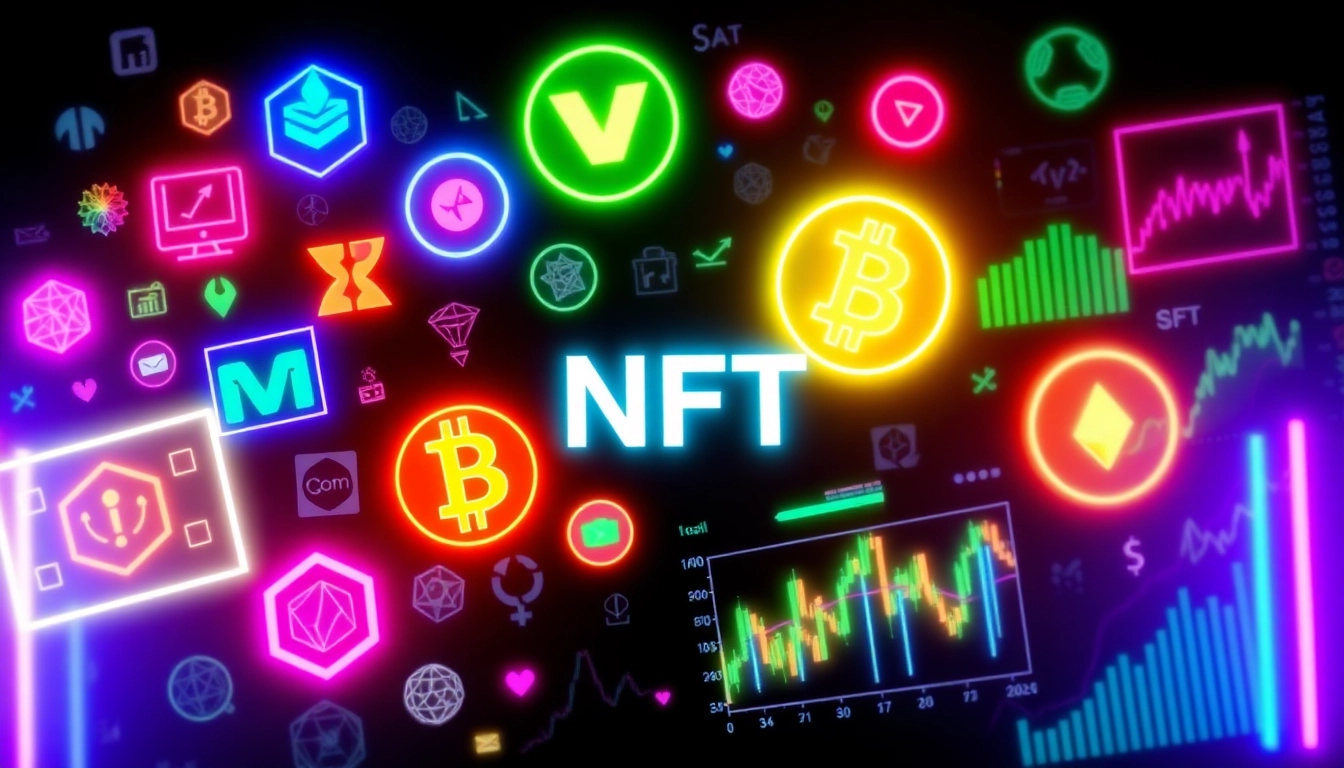Understanding the Current Landscape of Global Investment Market News
The global investment market is an intricate web of interconnected sectors, economic indicators, and geopolitical influences that continually evolve. Staying informed about Global Investment Market News is crucial for investors aiming to navigate this complex terrain effectively. Today’s markets are shaped by a multitude of factors, including macroeconomic trends, geopolitical tensions, technological advancements, and shifting investor sentiment. This comprehensive overview aims to elucidate the key influences that define the current investment landscape and provide insights into how investors can leverage this knowledge for strategic advantage.
Key Factors Influencing Global Markets Today
Several core elements are driving recent market movements. These include economic recovery trajectories post-pandemic, inflation rates, central bank policies, and fiscal stimulus measures. For instance, inflationary pressures have prompted central banks worldwide to reconsider monetary easing, influencing bond yields and equity valuations. Additionally, technological innovation and digital transformation are creating new investment frontiers, while supply chain disruptions continue to impact commodity prices and manufacturing sectors. Understanding these factors allows investors to anticipate potential shifts and adjust strategies accordingly.
How Geopolitical Events Impact Investment Trends
Geopolitical developments, such as international conflicts, trade disputes, and diplomatic hotspots, have profound effects on global markets. Recent examples include tensions in Eastern Europe affecting energy markets and trade policies between major economic blocs influencing currency and equity markets. Such events often introduce volatility and uncertainty, prompting investors to reassess risk exposure and diversify holdings. Moreover, geopolitical risks can accelerate or hinder technological and industrial advancements in affected regions, further shaping investment opportunities.
Major Economic Indicators Shaping Market Movements
Economic indicators serve as vital barometers of market health and investor confidence. Key metrics like GDP growth rates, employment figures, consumer confidence indexes, and inflation data are closely monitored. For example, unexpectedly high unemployment rates could signal economic slowdown, prompting policymakers to implement stimulus measures. Conversely, robust GDP growth may stimulate increased investment in cyclical sectors. Investors rely on these indicators not only to gauge current conditions but also to forecast future trends and position their portfolios for optimal performance.
Analyzing Important Investment Sectors in Global Market News
Technology and Innovation Sector Updates
The technology sector continues to be a dominant force, fueled by rapid advancements in artificial intelligence, cloud computing, renewable energy, and blockchain technologies. Investment news reveals evolving valuations, regulatory challenges, and breakout startups reshaping industries. Companies leading innovation are attracting sustained investor interest, with some experiencing exponential growth driven by digital transformation, shifts to remote work, and societal digitization. Strategic investors focus on emerging tech hubs and innovation clusters worldwide, seeking synergistic opportunities aligned with long-term trends.
Emerging Markets and Emerging Investment Opportunities
Emerging markets present both high growth potential and distinctive risks, including currency volatility, political instability, and less developed regulatory frameworks. Countries in Southeast Asia, Africa, and Latin America are increasingly becoming attractive due to demographic dividends, urbanization, and natural resource wealth. Recently, sectors such as fintech, renewable energy, and consumer goods have gained traction. Savvy investors conduct rigorous due diligence, utilizing local insights and advanced analytics to identify undervalued assets and capitalize on structural growth narratives.
Traditional Industries Adapting to New Global Trends
Traditional sectors like manufacturing, energy, and agriculture are undergoing transformative shifts driven by environmental concerns, technological innovation, and changing consumer preferences. For instance, energy giants are investing heavily in renewable sources to meet climate goals, while agribusinesses adopt digital supply chain management tools. Such adaptation strategies provide new investment avenues, enabling these historically steady sectors to harness sustainability and efficiency improvements to remain competitive in an evolving global market.
Best Practices for Investors Navigating Global Investment Market News
Interpreting Market Data and News Effectively
Successful investing demands more than passive reading of headlines; it requires analytical skills to interpret nuanced data. Investors should develop proficiency in reading financial reports, economic releases, and geopolitical briefs, paying attention to context, timing, and underlying implications. Regularly using financial analytics tools, following expert commentary, and maintaining a diversified information diet help in distinguishing noise from signals that matter for long-term decisions.
Risk Management Strategies in Volatile Markets
Market volatility can threaten portfolio stability, making risk management strategies essential. Techniques such as diversification across asset classes, employing stop-loss orders, and utilizing options for hedging are vital. Investors should also consider adjusting asset allocations in response to global cues, maintaining a liquidity buffer for unforeseen opportunities or crises. Building resilience against downturns involves continual reassessment of market conditions and aligning risk exposure with individual investment horizons and risk tolerances.
Utilizing Geopolitical Insights for Smarter Investments
Incorporating geopolitical analysis into investment decisions can provide a competitive edge. Tracking geopolitical risks through specialized reports and expert analysis helps anticipate potential disruptions or opportunities. For example, understanding how a trade war might affect supply chains enables preemptive portfolio adjustments. Moreover, investing in regions or sectors less exposed to geopolitical tensions can reduce risk, while targeted investments in economically strategic zones can capitalize on emerging opportunities.
Case Studies: Successful Investment Strategies Based on Global News
Lessons from Recent Market Rallies and Declines
Analyzing recent market movements reveals the importance of timely reactions. During the global rally driven by technological innovation and accommodative monetary policies, early investors in leading tech stocks reaped substantial returns. Conversely, during pandemic-induced declines, some investors employed defensive strategies, shifting into gold and essential goods sectors. These case studies highlight the significance of responsiveness and disciplined adherence to investment plans aligned with macroeconomic signals.
Analyzing Investor Responses to Global Economic Shifts
Market responses to global economic shifts showcase human and algorithmic behaviors. For example, the rapid sell-off during geopolitical escalations often triggers herd behavior, exacerbating volatility. Recognizing such patterns allows discerning investors to differentiate between panic and genuine opportunities. Structured approaches like contrarian investing or value-based investing can benefit from understanding market psychology alongside data trends.
Implementing News-Driven Decision-Making Approaches
Embedding news analysis within your investment process involves systematic monitoring, impact assessment, and timely execution. Developing criteria for reacting to specific news events—such as policy announcements or economic data releases—can improve decision quality. Combining real-time news feeds with quantitative models enhances predictive accuracy, fostering proactive rather than reactive investment management.
Future Outlook and Trends in Global Investment Market News
Predicted Market Developments for the Coming Year
Expert forecasts suggest continued digital transformation, with AI-driven analytics becoming standard in investment decision-making. Expect increased focus on sustainable investing, climate-related risk management, and geopolitical stabilizations. Additionally, shifts in monetary policy, such as rate hikes or easing, will influence liquidity and asset valuations, requiring investors to stay agile and informed.
Innovations in Market Analysis Tools
Technological advancements are democratizing access to sophisticated analysis tools. Machine learning algorithms, big data analytics, and real-time data integration enable investors to identify trends and anomalies more efficiently. Tools incorporating geopolitical risk assessments and sentiment analysis are enhancing predictive capabilities, empowering smarter decisions across asset classes.
Preparing for Potential Global Economic Disruptions
Resilience planning involves scenario analysis, stress testing portfolios, and creating contingency strategies. Investors should develop diversified, flexible portfolios that can withstand shocks, and stay abreast of early warning signals. Maintaining liquidity and integrating geopolitical risk analysis into fundamental assessments help in preparing effectively for unavoidable disruptions and capitalizing on emergent opportunities.




